Downpayments: How much money do I need to prepare when buying a home

If you want to buy a house, you may wonder how much of a down payment you will need. Learn the basics about down payments so you can make a good choice. Let’s jump right in!
Do you need a 20% down payment to buy a house?
Even though the requirement of a 20% down payment might make it seem impossible to buy a house, the good news is that fewer and fewer lenders are sticking to this rule. Still, if you can, it might make sense to put down the full 20% of the home's price.
Before you commit to anything, you should consider the pros and cons of making a significant down payment to ensure it fits your long-term financial and life goals.
What are the pros and cons of putting 20% down?
Let's examine the pros and cons to see how a significant down payment can compensate for other fees and costs.
Pros of 20% downpayment
Most loan types and lenders agree that a 20% down payment is the best. You'll get a few crucial advantages if you put 20% down on a home.
-
Better Interest Rates
The interest rate is the percentage of your mortgage's principal, or balance, that your lender charges you each month for borrowing money. The less risk you pose to lenders, the more money you put down.
-
No PMI
If you don't want to buy private mortgage insurance (PMI), you'll need to put 20% down. PMI is insurance that protects your mortgage lender if you don't repay your loan. Even if you don't put 20% down, you can ask your lender to drop PMI once your home is worth 20% more than what you owe.
Most of the time, lenders will cancel PMI for you once you've put at least 22% of your own money into your home.
You might get a lower interest rate if you can put at least 20% down on your mortgage when you close. You could save thousands of dollars over the life of your loan if your interest rate were just one or two points lower.
-
Better than other buyers in some way
Most home sellers would instead work with people who could put at least 20% down on the house. Your finances are more likely to be in order if you make a more significant down payment, so you might have an easier time finding a mortgage lender. It can give you an advantage over other buyers, especially if the home you want is in a hot market.
-
Pay less each month
The less you borrow for your mortgage loan, the bigger your down payment. The less you borrow, the less you'll have to pay each month on your mortgage. Setting aside monthly money for repairs and other costs is easier.
Cons of 20% downpayment
Only some buyers should put 20% down. Some buyers just need the money, and others would rather save some money for repairs and other costs in the future. Consider these cons when deciding how much of a down payment you need to buy a house.
-
Extended Time to Save
Most people need months, years, or even decades to save up for a down payment. When you think about how much you'd spend on rent each month, waiting until you have 20% for a down payment can cost you a lot. You might save more money in the long run if you buy a home now instead of renting while you save up for a 20% down payment.
-
Less money to fix things and buy other things.
New buyers can save a lot of money on homes that only need minor repairs. But the more you put down as a down payment, the less money you'll have left over for repairs and upkeep.
-
Greater Monetary Risk
It's hard to get back the money you put down on a mortgage. If you think you will need the money for something important in the future, it is wise to put down less and save up for an emergency.
How much of a down payment do you need to make?
Depending on your loan type, you may need a different amount for a down payment. Some of the minimum down payment requirements depend on whether you're buying a primary residence, a second home, or an investment property.
The amount you need for a down payment on your main home, also called your primary residence, can vary, and it depends on the type of loan you want and how much money you already have.
-
Conventional loan: The requirements for a traditional loan on a primary home are entirely up to the lender. Some lenders might ask for a 5% down payment, while others only want a 3% down payment. If your credit score exceeds 620 points, your lender may offer you loan options with less down payment.
-
FHA loan: You'll need at least a 3.5% down payment for an FHA loan. You'll need a credit score of 580 or higher to put down the minimum 3.5% FHA loan.
Related: Read here to learn more about conventional and FHA loans.
-
USDA loan: Like a VA loan, a USDA loan doesn't require a down payment. But to be eligible, your home needs to be in an approved rural or suburban area, and each household member needs to make enough money.
-
VA loan: You don't need a down payment when you get a VA loan. There are rules about how long you must have served and why you got out of the military. On the Department of Veterans Affairs (VA) website, you can find everything you need about the service requirements for a VA loan. You may also be able to get a VA loan if you are the spouse of a military member or veteran who died in service or because of a disability caused by service. You can also find the complete eligibility requirements for spouses on the VA website.
So, how much down payment should you make on the house?
There's no one-size-fits-all answer for this one. Look at how your down payment will affect your monthly income. Or use our home valuation to understand how a specific down payment will affect your monthly income. Enter your basic information and try out different payment amounts.
Final Thoughts
Today, you no longer have to pay 20% to buy a home. You can buy a home with as little as 3% down, and if you qualify for a VA or USDA loan, you might even be able to buy a home with no money down.
If your down payment is less than 20%, you might have to buy private mortgage insurance, pay a higher interest rate, or deal with more competition in the housing market. But if you can afford a 20% downpayment, it will be better for you in the long run because of lower interest rates.
Still trying to decide which type of mortgage best fits your needs and the amount of money you have saved for a down payment? Reach out to us at Loft Realty to learn more about getting approved and to determine which loan option will work best for your finances.
Categories
Recent Posts

Top-Rated Hospitals in Delaware

Exciting Events to Heat Up Your Winter in Delaware!

Smarter Home-Buying Decisions

Why Retirees Are Falling in Love with Delaware: Neighborhoods, Communities, and Everything in Between

Best Places to Go Sledding in Delaware

Delaware’s Secret: Reasons Why It’s Not Expensive to Live Here!

5 Best Spots for Last-Minute Holiday Shopping

8 Best Places to Eat at the Rehoboth Beach Boardwalk

The 8 Biggest Mistakes People Make When Moving to Delaware—Here's What You Need to Know

Is Wilmington, Delaware Safe? A Look at Recent Changes in Crime Rates and Community Efforts
GET MORE INFORMATION

